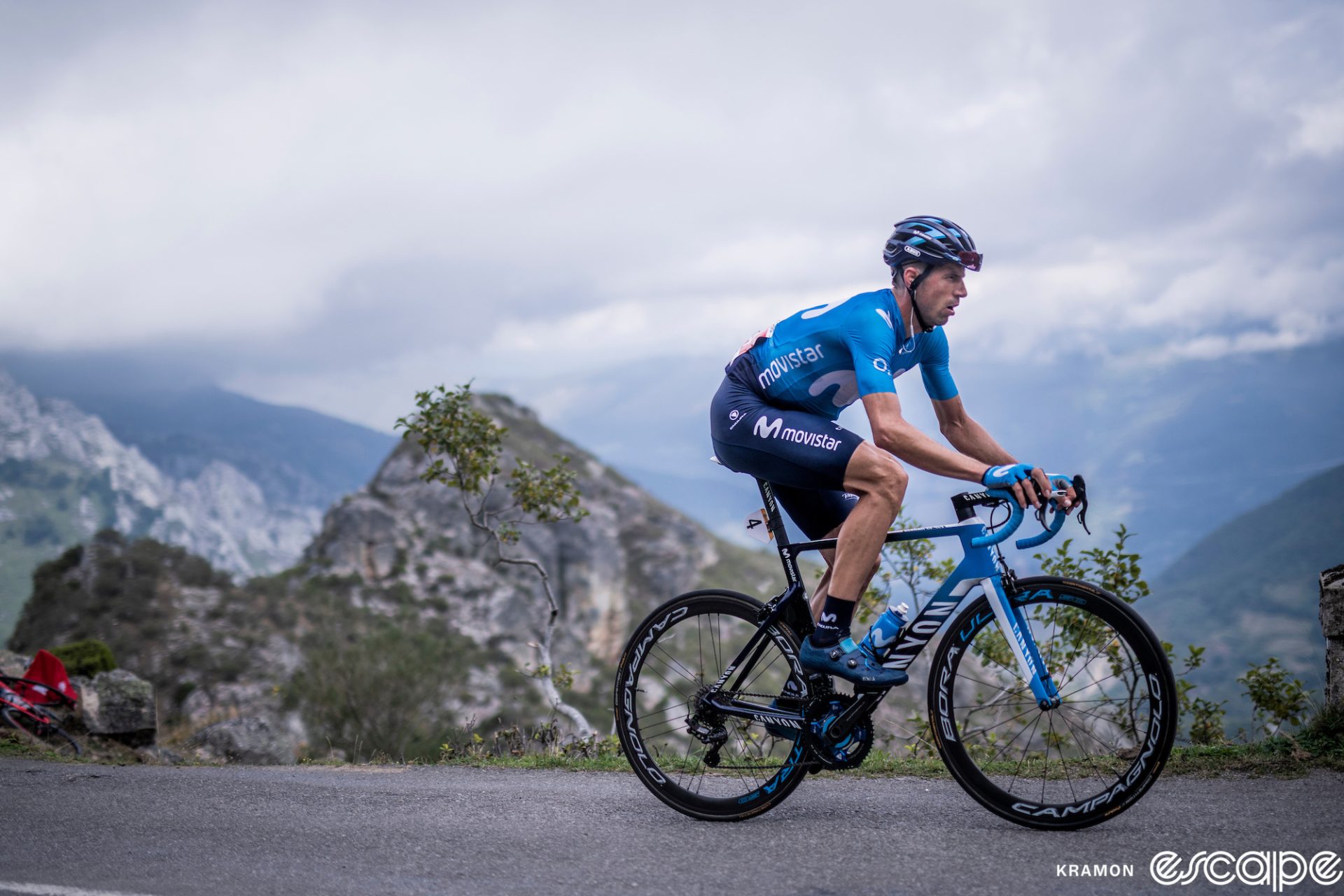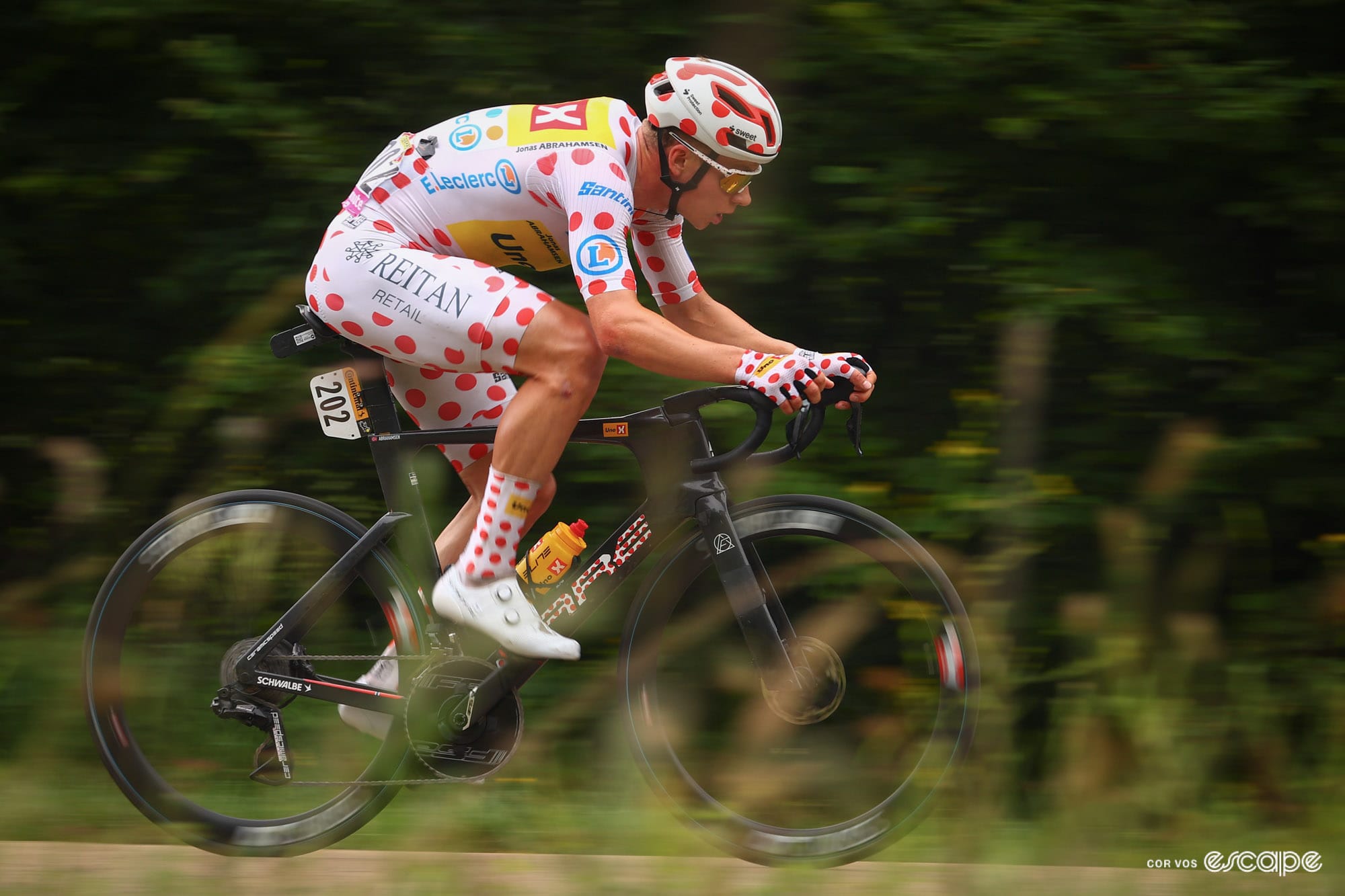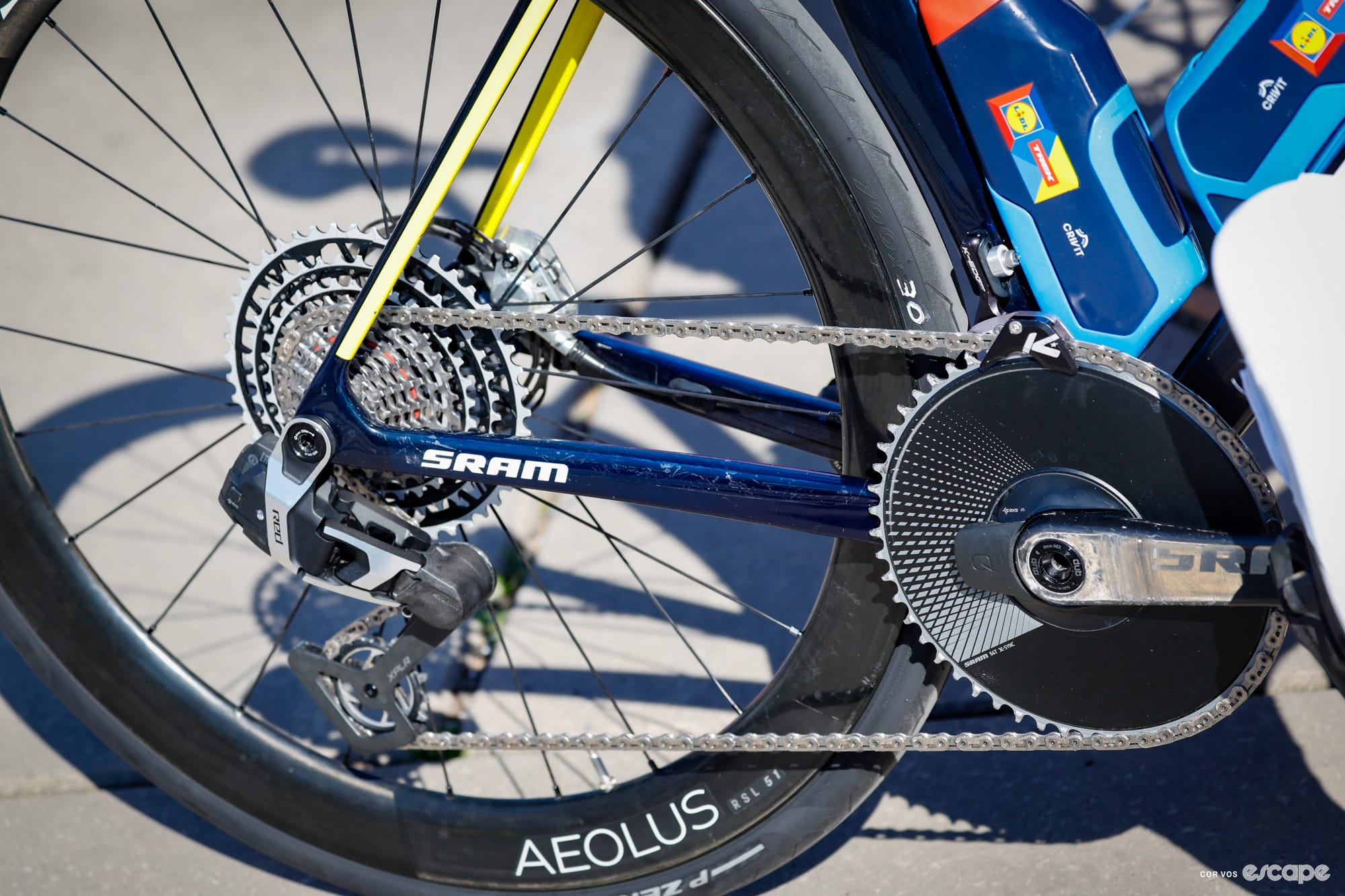Global warming may have put paid to actual leaves falling at Il Lombardia, but it remains the traditional farewell race as part of sport’s cycle of renewal.
There was a colorful and noisy goodbye to Thibaut Pinot, the goat-loving grimpeur who had more ups and downs than a malfunctioning cherry picker.
As for the oldest man on the start list, you probably didn’t notice his exit. Imanol Erviti slipped out the side door quietly, announcing his retirement from pro cycling in a social media post Monday.
Who, some of you might ask?
The 39-year-old – soon to be 40 – didn’t make many headlines or court them. He was simply Movistar’s most reliable domestique for years on any profile. For 19 consecutive seasons, since turning pro in 2005, to his last race in October 2023.
Nineteen! When he joined this circus, Lance Armstrong was a bona fide, undisgraced Tour de France champion. Helmets were not mandatory for uphill finishes in the ProTour, as it was called then. Taylor Swift was just a Tennessee high schooler with a few demos and a dream.
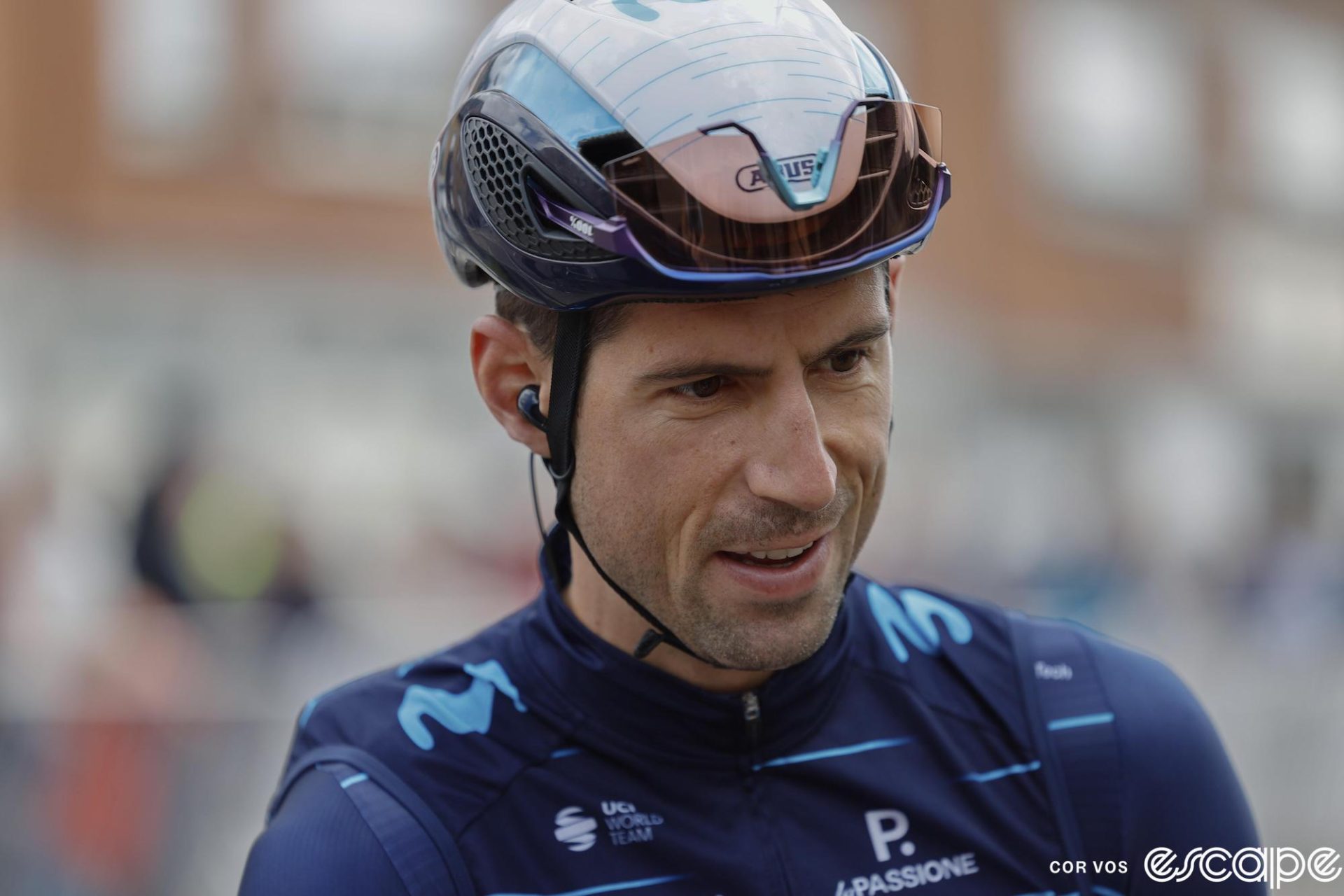
But for 19 seasons, across more than 200,000 race kilometers, not including training, Erviti was a mainstay for his team, whether it was called Illes Baleares, Caisse d’Epargne, or Movistar. That’s a lot of bottles carried and flagging spirits lifted over the dinner table, a magician’s act of conjuring up more motivation and energy season in, season out.
Erviti’s final big stage race sums him up: working his butt off for Enric Mas at the Vuelta a España after a late call-up due to a teammate’s injury. He still finished; across 29 Grand Tours, he’s only DNF’d twice. That’s almost two years of his life spent eating rice every day and waking up in crummy hotels.
He was Mr. Dependable, participating in every Monument at least five times, Roubaix and Flanders on 17 occasions apiece, finishing in the top 10 in both in 2016.
If Imanol Erviti was American, his cult hero status would be assured; his sheer longevity recalls that of someone like George Hincapie, after all. But it feels like spending his time on a Spanish team and only speaking his mother tongue put Erviti in a different orbit for the sport’s international fans, and kept his recognition like that of an underground indie band.
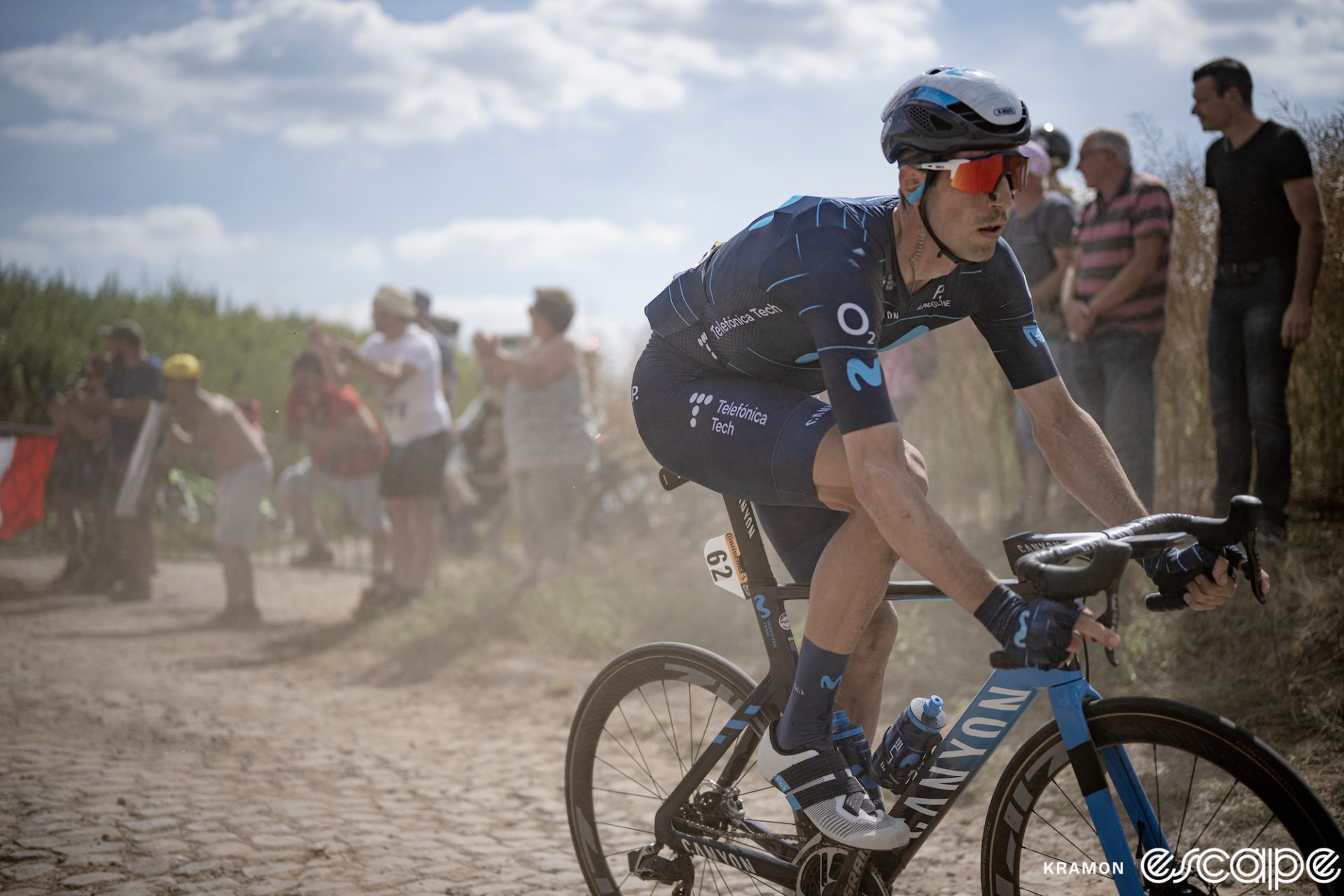
His retirement was duly - if briefly - noted in Spanish media, but hardly further; his near-constant presence in the sport up against a language barrier that neither social media nor translation apps seem able to scale. But those in the know recognize him as one of the 21st century’s strongest, hardiest domestiques.
As something of an introvert, he would never shout loudly about what he does. But Erviti is a racer’s racer. “This sport won’t be the same without you,” his teammate Matteo Jorgensen posted underneath the veteran’s Instagram retirement message.
Being a domestique is a gruelling job. “You have to be very honest and generous. That’s key,” Erviti told me in 2019 in an article for Rouleur. “A good worker transmits faith and confidence to his leaders.
“There are days where you must be professional and forget about how you feel. Once you start thinking too much, it gets complicated. Like if they tell you: ‘Imanol, you need to ride on the front from kilometer 20 till 190.’
“There are days when things come out easy and others where you don’t know how you were able to do what you did … by doing my job, teammates would congratulate me because they saw how I emptied myself. When you give your honest effort, people show their gratitude.”
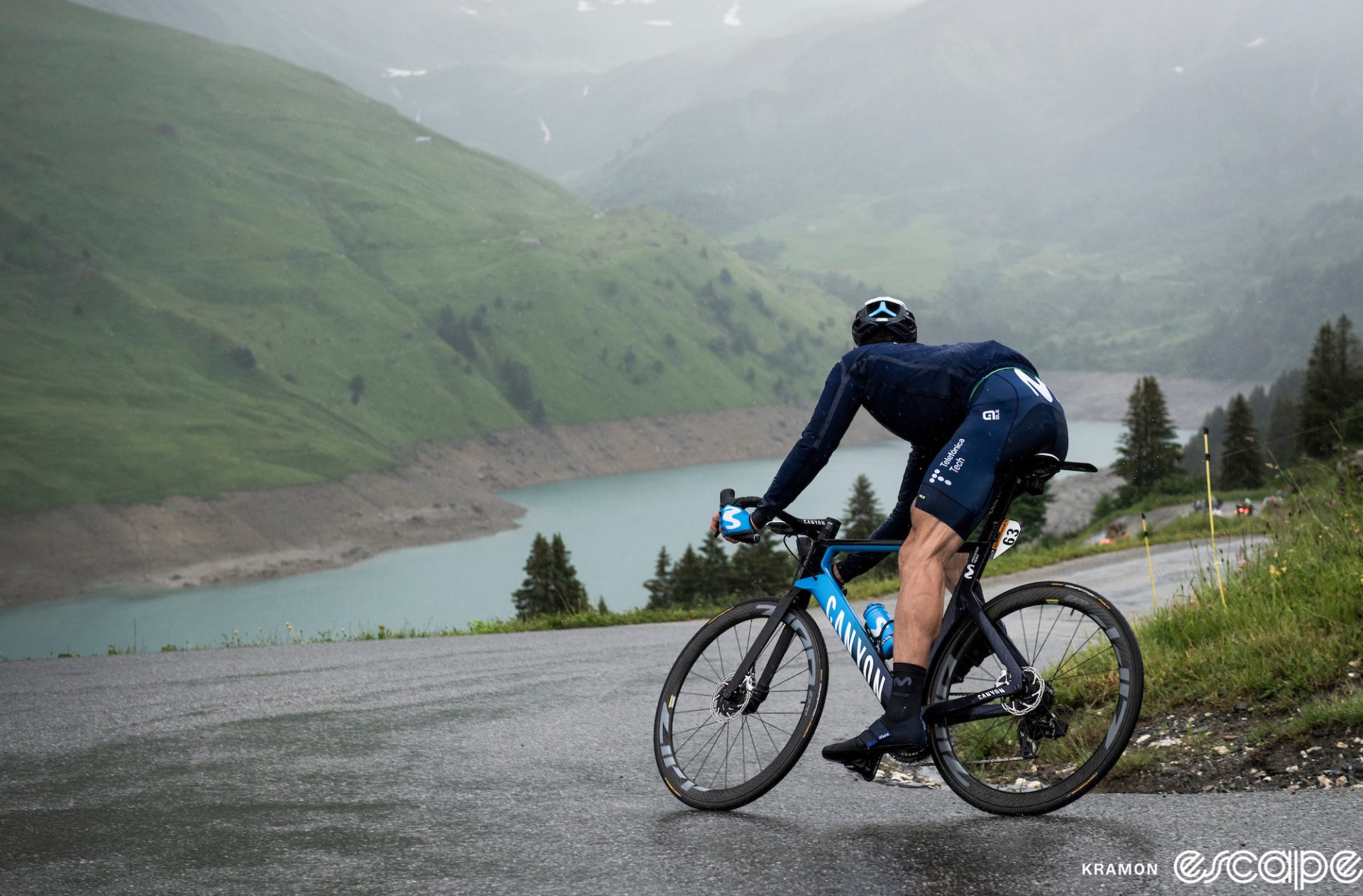
Erviti believed his colleagues liked his calm, a tranquillity he could somehow share with them when they were tense. There was a lot of hidden stress on his shoulders too, keeping leaders out of trouble in a Grand Tour for the predominantly flat opening half.
“The head is important,” he told me. “That’s why some high-level riders are not able to manage the constant pressure [of being a domestique] and probably fit better in a smaller team, where they have their own chances more often.”
The strapping Spaniard’s own ability to win was eroded by his perennial role as helper. Two Vuelta stage wins early in his career signalled promise, but as time went by, maybe the long kilometers dulled his snap, or he lost some of his capacity to sense the instinctive moments to attack. He has three wins on his palmarès, but came close countless other times, including second place on a stage at the 2021 Tour de France.
In cycling, only one person wins; it’s a thankless sport, to quote Erviti himself. But there’s an umpteen amount of “assists” (to use a soccer term) by helping leaders from Alejandro Valverde - whose impressive career was virtually in tandem with Erviti’s own - to Enric Mas, across three different decades. “Many thanks for everything,” Valverde wrote on social media, “for your work, your trust, and for your support always on and off the road.”
Erviti was a symbol of loyalty, though the fact that he was even able to stay so long on one team speaks to Movistar’s own longevity. It leaves a void, but I’d wager he will end up in their team car. Just as Erviti was part of a chain, learning from the likes of Pablo Lastras and Txente García Acosta, there is an immense amount he can pass on, and he likely will.
“Life, like careers, is made up of stages, and they say that when a stage ends, new opportunities open up,” Erviti wrote in the simple post announcing his retirement. “Now it's time to take a breath, a little reflection and go for it.”
Erviti is an antithesis to the modern world of noise and notifications. He doesn’t post much on social media. He started racing in a different era, and while he has assimilated pro cycling’s changing technologies and data, his core values belong to the past. The Navarran wouldn’t look out of place in a woollen jersey with an inner tube round his shoulders.
He was content to be strong, steady, and selfless. He knew what was enough and what was right for him. After all, whatever the sport or industry, there’s only room for a select few at the top. In life, most of us are not Tadej Pogačar or Remco Evenepoel. We are Imanol Erviti.
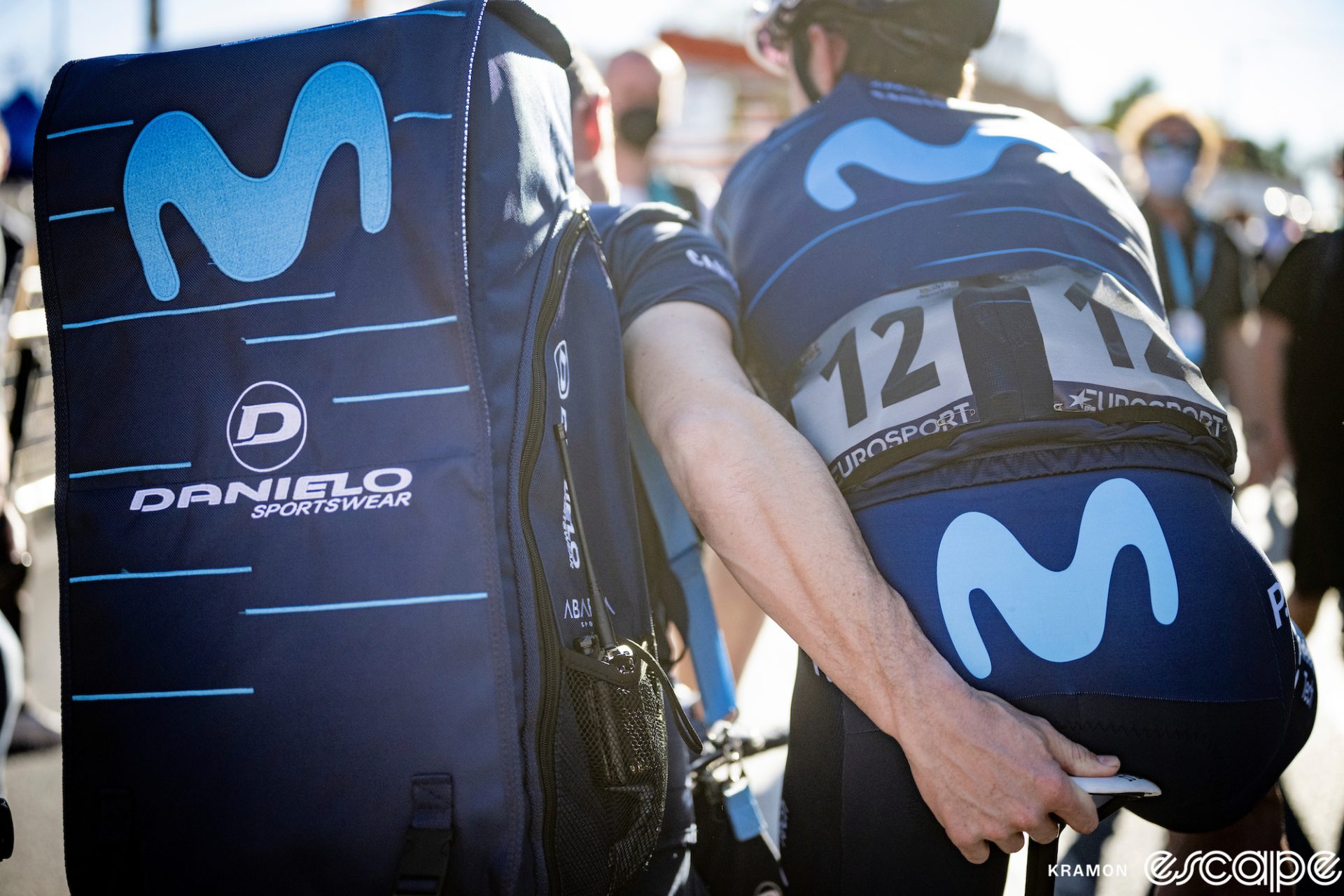
Did we do a good job with this story?

